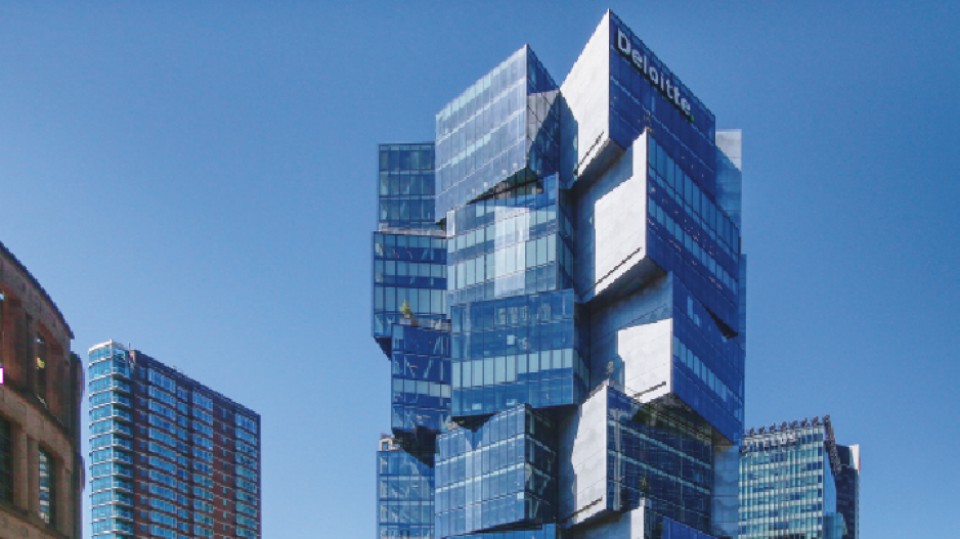This article is part of BIV's in-depth look at the labour forces shaping work and business in B.C.
A spring memo from Elon Musk laid bare what the world’s richest man thought of remote working two years into the pandemic: Employees were to return to the office for a minimum of 40 hours a week or depart Tesla Inc. (Nasdaq:TSLA).
In the wake of Musk’s mandate, reports soon emerged of employees finding there were not enough parking spaces or desks to accommodate them all.
The lack of foresight in back-to-office planning has been an all-too-common scenario, according to Wayne Berger.
“Workers are coming back to an office only to recognize that the meetings that are taking place that day are still being held virtually,” said the CEO of IWG plc’s North America and Latin America division, whose company offers 3,500 co-working spaces across the globe.
“They’re required to come in regardless of the type of work that is required of them that day, which is fairly nonsensical.”
Even as many companies try to entice workers back to the office with offers of free food or parking, Berger and other experts say employers risk alienating their workforce without proper planning.
“The idea of just basically blindly mandating or rolling out a type of return-to-work policy that isn’t carefully thought through and also clearly communicated is creating more damage amongst the workforce,” Berger said.
“Those companies are facing low morale, whereas they had high morale when people had more choice and optionality with where they’re working.”
Vancouver-based Prometheus Private Advisory Group has been trying to thread that needle, offering parking reimbursements for those who come in, improving amenities such as free snacks and sometimes-free lunches, as well as setting up a barbecue on the company patio.
“Oh, and lots of drinks, both alcoholic and non-alcoholic,” said Philip Tsai, client experience manager at the financial literacy firm.
“We’ve also eliminated the dress code so people are able to come into the office in any kind of outfit they’d like.”
He said the company made the adjustments after realizing it could not hide from the fact that it’s cheaper and more comfortable for employees to work from home.
“We don’t believe there’s going to be a full-time return to the office, but we do see a lot of value in people returning to office to collaborate, get creative and develop strong relationships,” Scott Wasserman, general manger of the Americas for Vancouver-based digital consultancy Appnovation Technologies Inc., said in an email.
For those returning to Appnovation’s office, workers will find more collaboration spaces inside as well as treat days featuring free lunches and a policy allowing people to bring their dogs to work.
It appears some of these enticements are effective among certain cohorts.
Just over three-quarters (76 per cent) of Canadian student workers report amenities like free coffee and snacks, and high-quality cafeteria foods, are important for their future workplace, according to an April report conducted by JED Consulting and commissioned by Colliers Canada.
But Berger said offerings of free amenities like food to offset inconveniences like a longer, more expensive commute have been limited.
“They want choice and flexibility in where and when they conduct their work,” he said, adding that it was a misconception that most people do not wish to return to the office.
“The issue really comes down to the fact that a large percentage of the workforce does not want to go to an office five days a week, each and every week.”
Meanwhile, the pandemic has also pushed some companies to rethink what a physical workplace should be like in what Jayana Darras describes as “the next normal.”
“Gone are the days where you have a bunch of cubicles and people are just heads down working because, really, if that’s what you need to be doing, at-home is probably the better spot,” said the culture people leader for Deloitte Canada’s B.C. office.
“But when you’re in the office, what do you want to get? You want to be running into people, you want to have that water-cooler chit-chat.”
Deloitte’s local team is moving into a new downtown Vancouver office at 410 Georgia Street West. Darras said the pause brought on by the pandemic allowed the company to throw out traditional office layouts and consider how people would be working in this COVID-19 era.
The new offices at the Deloitte Summit tower will be open concept and feature breakout rooms with phones and screens allowing remote workers to tap into meetings.
Stand-up desks will dot the floor, and one storey will be dedicated to employees who bring their dogs with them to work, an idea that, Darras acknowledged, “seems to be a little polarizing. You either love it or you hate it.”
Darras said employers should still be inclusive towards those not coming in, because it could be for a range of reasons, including health concerns.
Deloitte has also been holding a “Welcome Wednesday” once a month for new workers, in which the event has an online component followed by some sort of in-office activity.
Darras said offices should also be prepared to deal with whatever the future holds for COVID-19.
“Right now with B.C., we seem to be OK. But in the fall, are we going to have more issues and more transmission? And so how do you balance that safety?” she said.
Like Berger, Darras believes the key to successfully bringing more people back into the office is to offer choice.
“And it’s how do you balance that choice, so you get what is best for individuals, what is best for the organization and what is best for stakeholders?” she said. “I don’t think anyone’s cracked it yet.”



